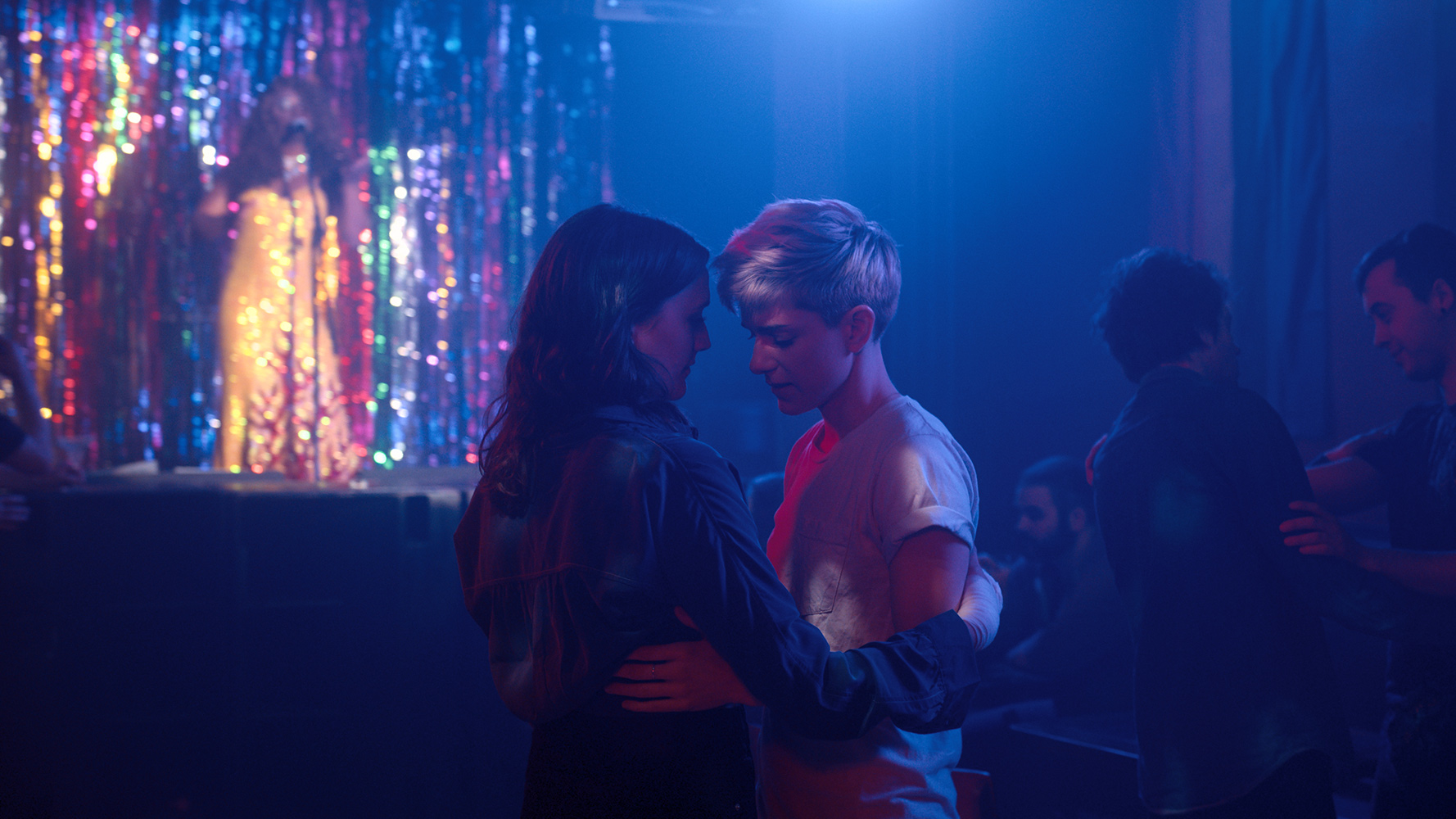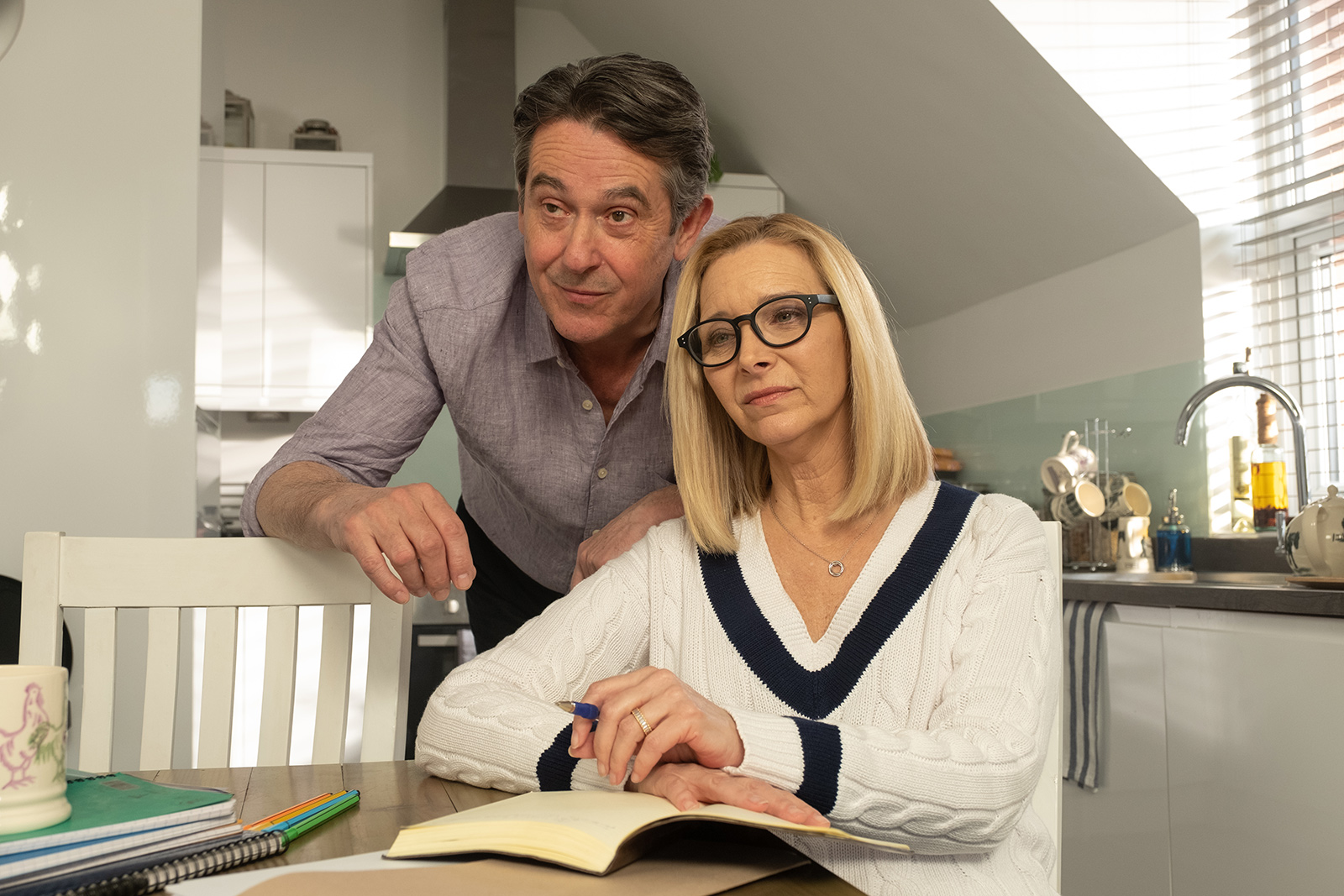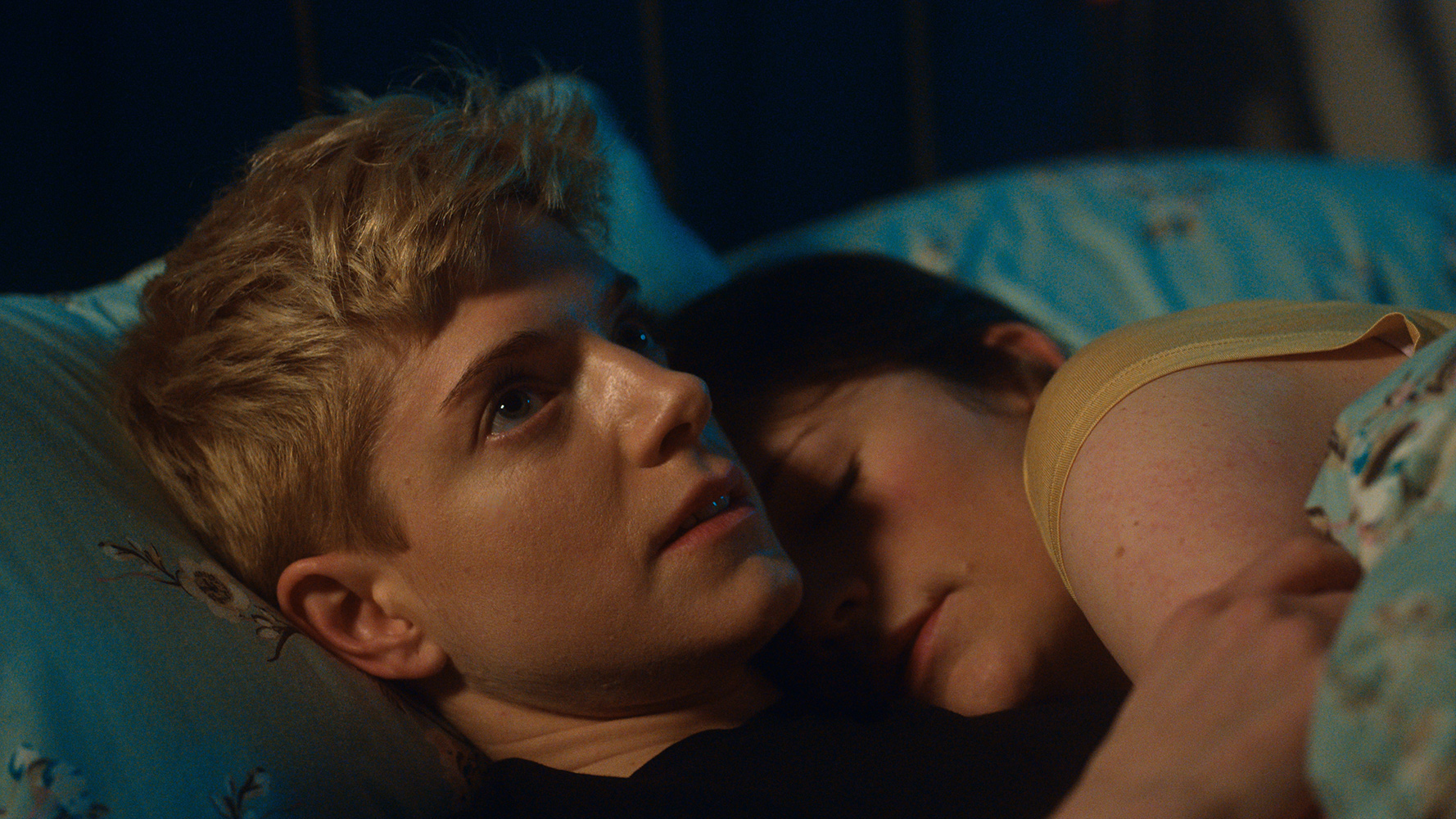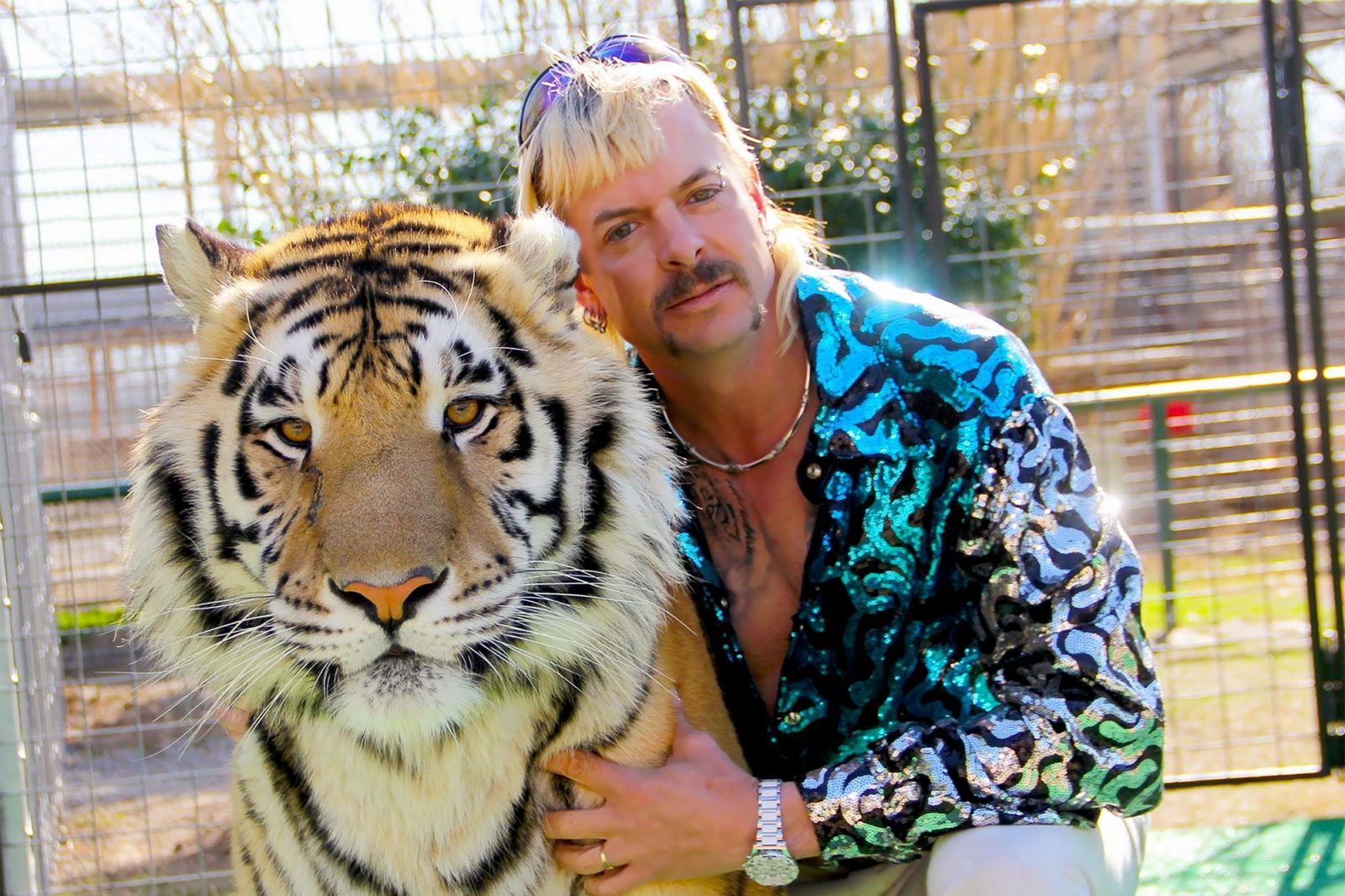Canadian Comedian Mae Martin Debuts an Honest Love Story on Netflix
Feel good TV.

Comedy is a great equalizer: groups of strangers gather in a dark room to laugh (or not) at topics that would be otherwise polarizing in the harsh light of day. In many ways, Canadian comedian Mae Martin’s new Netflix dramedy Feel Good feels like a dimly lit comedy club as the storyline pulls you into an intimate conversation about sexuality, addiction, family, and modern love.
First performing in Toronto at 13, Martin has made a name for herself by weaving personal (and hilarious) narratives surrounding her history with addiction and bisexuality into her standup routines. She believes “issues like sexuality or addiction are so politicized right now and the public conversation around them is so fraught that I think it’s always good if we can inject some levity and some humanity and humour into them.”
Feel Good picks up where her comedy leaves off. It personifies Martin’s go-to themes while placing a love story at the centre. “An all-consuming roller coaster-y love that I think a lot of people have experienced,” she says, admitting, “I definitely have.”
The plot follows the relationship between a fictionalized version of Martin—Mae, a comedian struggling to connect with a London audience—and George, a straight-identifying woman coming to terms with her attraction to Mae. The refreshing exploration of modern sexuality and poignant, at times, raw look at love is one that feels blissfully set apart from the political weight. This is largely due to the comedy, Martin says, “With sexuality, what we’re talking about is love and sex. It’s the most natural and relatable and universal thing in the world, and I think that’s really important. That’s why comedy is so great. It’s very unifying.”

Photo by Matt Crockett.
People who have seen the show often ask Martin if it was a cathartic and therapeutic experience, but she wants to emphasize that “This is a comedy that we just tried to tell as a really good love story. It definitely is not just a diary entry.” Feel Good is an emotional autobiography, but the storylines and characters are a chimeric patchwork of people and events that are “massively embellished.”
She does concede that: “comedy is so solipsistic, it’s just you and your own thoughts and opinions, so it was amazing to get to write from the perspective of my parents or someone I would have dated, and other people in my life. That was very illuminating.”
There are road markers in the show that point to where Mae and Martin diverge. Mae’s parents, played by Lisa Kudrow and Adrian Lukis, are distant and antagonistic in the show, but in reality, Martin’s parents are “amazingly sweet,” she says. “They’re super supportive, they’re excited and proud. I’ve put them through so much. I was a very tumultuous teen, and they’re just infinite and amazing.”

Mae’s parents, played by Lisa Kudrow and Adrian Lukis, are distant and antagonistic in the show, but in reality, Martin’s parents are “amazingly sweet.”
The goal of the show, Martin explains, is to “[draw] on an emotional truth that hopefully people can relate to about parents in general and adolescence.”
While the character Mae may be searching for her voice in Feel Good, Martin has certainly found hers. She carved out a niche for herself through trial and error, experimentation, and puberty.
“When I first started I was literally going through puberty,” she recalls, “so I was just all over the place. No teenager knows who they are at all. I was basically doing impersonations of other comedians who I liked. I think most comedians do that, they try on different genres and styles. One year you’re doing Mitch Hedberg and the next you’re doing Joan Rivers.”
It took her awhile to find her voice on stage, but as it turns out, it’s remarkably close to her own. People were more responsive the more she shared about herself. What we see now of Martin is a curated, yet incredibly honest persona. “I don’t know where it ends,” she jokes. “I don’t know how much more personal I can get.”
At times, when Martin was creating Feel Good, she saw parallels with standup. Mae’s character is a lot like Martin but, she says, times 200. “She’s got a pretty flimsy grasp on her own sanity and her life. She has struggled with all of the same things that I do so that emotional truth is there, but we have milked every droplet of drama from it.”
Martin wrote Feel Good with her best friend, Joe Hampson, a playwright and former writer for the TV show Skins. The co-creators had a very clear vision for the show and were involved in every step of the process from the soundtrack to the director and casting. “We were super involved and control freaks about it,” Martin admits, saying the final product that premiers on Netflix today (March 19th) is extremely close to what they had imagined—a great feeling.
To keep themselves sane, the two pretended that they were just writing the show for themselves or panic would set in over how exposing the show was. Instead, they tried to make each other laugh, sketching scenes, writing, and then editing each other’s. The result is a script that bleeds love and affection for its characters and subject matter.

Feel Good tells the story of “an all-consuming roller coaster-y love that I think a lot of people have experienced,” Martin says, admitting, “I definitely have.”
It helps that the two knew who they were writing for and about. “We always knew we wanted Charlotte [Ritchie] to play George,” Martin reveals. “She’s so funny and natural, and we knew we wanted people to see that side of her that we know. So we had a really good time writing for her and what would be funny to see her say and do.” For instance, who wouldn’t want to make their friend say, “I feel like I have eels up my bum,” on television. Mae also compliments George insistently, and Martin points out, “it’s a lot easier to write compliments when you know who you’re writing about.” She really does believe that Ritchie is a “dangerous Mary Poppins.”
The honesty of the show and its writing is hard to turn away from. It is rooted in the real people who came together to create it, and that camaraderie forces the viewer to confront some harsh realities about where love and addiction intersect. Martin feels that when addiction is depicted on screen it is always intense and dramatic, but in reality, addiction can be quite mundane: “It’s something that probably most of us have some experience with. If you broaden that definition, it could be anything that we do compulsively despite knowing the negative consequences,” she says. The character of Mae is representative of the teeth-grinding frustration of day-to-day addiction and additive behaviours. Coupled with the ambiguity of Mae and George’s relationship, Feel Good refuses to give you simple answers to life’s more complicated questions.
Martin hopes people relate to the show’s characters and invest in the relationships. She and Hampson want their peers and the people they respect to see it and find it funny. She affirms: “I hope people binge it, and I hope that Martin Short sees it, and that my parents like it.”
________
Never miss a story. Sign up for NUVO’s weekly newsletter here.



